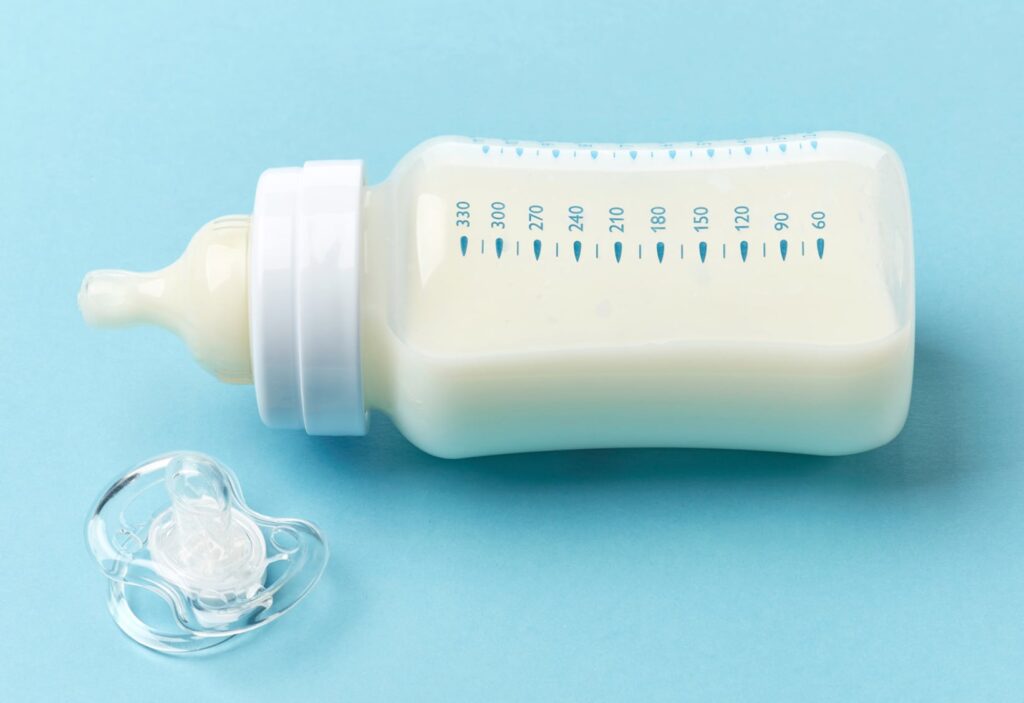Pacifiers and Baby Bottles: Comforting or Concerning?

Pacifiers and Baby Bottles – When it comes to sucking, babies are naturals — maybe because they practice even before they are born! Children begin sucking on their thumb while in the womb to develop the skills necessary for breastfeeding. And for many kids, this skill has an added bonus: Thumb-sucking can be very soothing. Many infants and toddlers will continue to suck their thumb or use a pacifier even after they start eating solid foods or stop taking a bottle.
Unfortunately, the use of pacifiers, bottles and sippy cups can lead to speech and dental problems as your child gets older. Because children develop at different ages, it’s a good idea to speak with your dentist and pediatrician to make sure that your infant or toddler’s early oral habits don’t cause problems.
Pacifier Blues
In a child’s first few years, pacifier use generally doesn’t cause problems. But constant, long-term pacifier use, especially once permanent teeth come in, can lead to dental complications. Constant sucking can cause top front teeth to slant out, and bottom front teeth to tilt in. It also can lead to jaw misalignment (such as an overbite) and a narrowing of the roof of the mouth.
It is generally advised that children stop or drastically reduce their pacifier use around age 3. If a child is dependent on the pacifier to be calmed and soothed, try giving it to him or her only when absolutely necessary and using positive reinforcement to wean them off the habit.
If possible, buy pacifiers labeled “orthodontically friendly” because they may limit the risk of dental complications. It’s also a good idea to buy pacifiers constructed as one piece. And never attach a pacifier to a string around your child’s neck, this can cause them to choke.
The Big Bad Bottle
Many children use a bottle longer than necessary. Apart from the risks associated with the sucking motion, bottles also carry a heavy risk of promoting tooth decay if they contain anything other than water.
Frequently sucking or sipping on milk or juice from a bottle over an extended period of time will increase your child’s risk of tooth decay. When sugars and carbohydrates come in consistent contact with teeth, they create an environment for decay-causing bacteria to thrive. Tooth decay can lead to painful infection, and in extreme cases, children may need to have a tooth extraction or dental treatment to extensively repair damaged teeth.
If you notice small white spots or lines on your child’s teeth, particularly near the gum line, it’s a good idea to consult your dentist immediately, as this may be an early sign of decay. As a way to cut back on children’s bottle use, your pediatrician or pediatric dentist may recommend using sippy cups. While these are very useful for transitioning your child from bottle to regular cups, they also pose their own threat to teeth and speech development.
For more help breaking baby away from pacifiers and baby bottles, talk to your dentist.